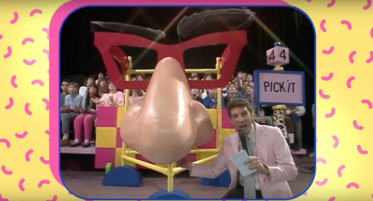
Prompt Images
FAQ About the Food and Drug Administration’s New Microfiction Contest
Welcome! Are you looking to submit a story to the FDA’s new Microfiction Contest? Before you do so, we suggest you read the following answers to our frequently asked questions.
What is the FDA’s Microfiction Contest?
The FDA’s Microfiction Contest was created to help streamline our notoriously difficult drug approval process. In the past, applicants were required to fill out hundreds of pages of forms to provide us with a litany of details about their proposed new drug, previous experience manufacturing drugs, and potential conflicts of interest. Going forward, applicants seeking approval for a new drug simply need to submit an incredibly short piece of fiction (three hundred words or less) featuring the drug to microfic@FDAapproval.gov.
Do I Still Need to Conduct Multiphase Clinical Trials to Ensure the Safety and Efficacy of My Drug?
No. Entry into the Microfiction Contest is the only requirement. We’ll be holding a new contest every week and the winner will get their drug approved for sale in the U.S. and Virgin Islands.
Why a Microfiction Contest?
We considered a nanofiction contest, but thought it would be hard for applicants to tell a story that really resonated with readers in fifty words or less. At the other end a “short story” contest seemed way too open ended.
How Do I Obtain Approval for Drugs Intended to Treat Diseases Other than COVID-19?
Although the microfiction contest was created with the current corona pandemic in mind, applicants are encouraged to submit entries for drugs treating any other diseases as well. That said, please refrain from sending us stories featuring treatments for especially disgusting ailments such as hemorrhoids, goyders, or gout. We don’t even know what gout is, but merely typing that word makes us cringe.
Can I Get Approved Even If My Story Doesn’t Win First Prize?
No. Only one winner each week gets FDA approval for their new drug. But you can submit as many as three stories concurrently to increase your odds of winning.
Also, anyone who places in the top ten will get a free T-Shirt that says “I Entered the FDA’s Microfiction Contest and All I Got Was This Lousy T-Shirt,” so be sure to provide us with your size when you submit your story.
What Are the Submission Guidelines?
The submissions should be double spaced, with one inch margins. And please be aware that the three hundred word limit will be strictly enforced. If you can’t communicate the essence of your drug in a fictional narrative of three hundred words or less, perhaps your drug is not as effective as you think.
I’m Not Very Creative. Can I Just Submit a 300 Word Research Abstract Instead?
No. It’s a micro-fiction contest. Send your boring abstract to the nerds at the NIH. Give us a compelling plot. Give us characters we can empathize with, preferably a character with an interesting backstory and/or a character from a historically underrepresented group.
Is the Microfiction Contest Limited to People In the Drug Industry?
Absolutely not! Just recently we received a submission from the novelist Jonathan Franzen. Does Franzen have any previous scientific experience? No. Do we think his proposed drug — consisting of “half an ibuprofen superglued to half a Xanax” — will help to treat coronavirus? No. But we were so captivated by his three hundred word noir thriller set in the wet markets of Wuhan, and narrated by a pangolin turned gumshoe who struggles with both chronic back pain and severe anxiety, that we gave him first place anyways. That said, we would not recommend taking Xanaprofen for coronavirus. Or anything, actually.
Any Other Advice?
Don’t overthink it. We aren’t looking for the next Chaucer here. Just use the teeny tiny narrative vehicle that is microfiction to tell us everything there is to know about your potential miracle drug (except the boring stuff, of course). Actually, don’t tell us — show us. Preferably with special attention paid to mood and setting.



